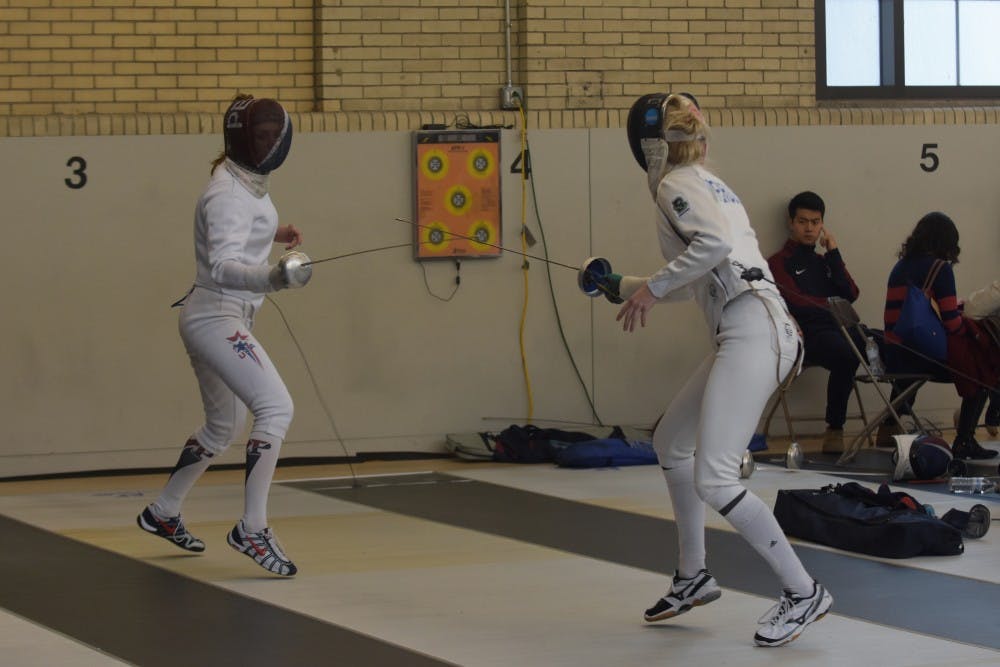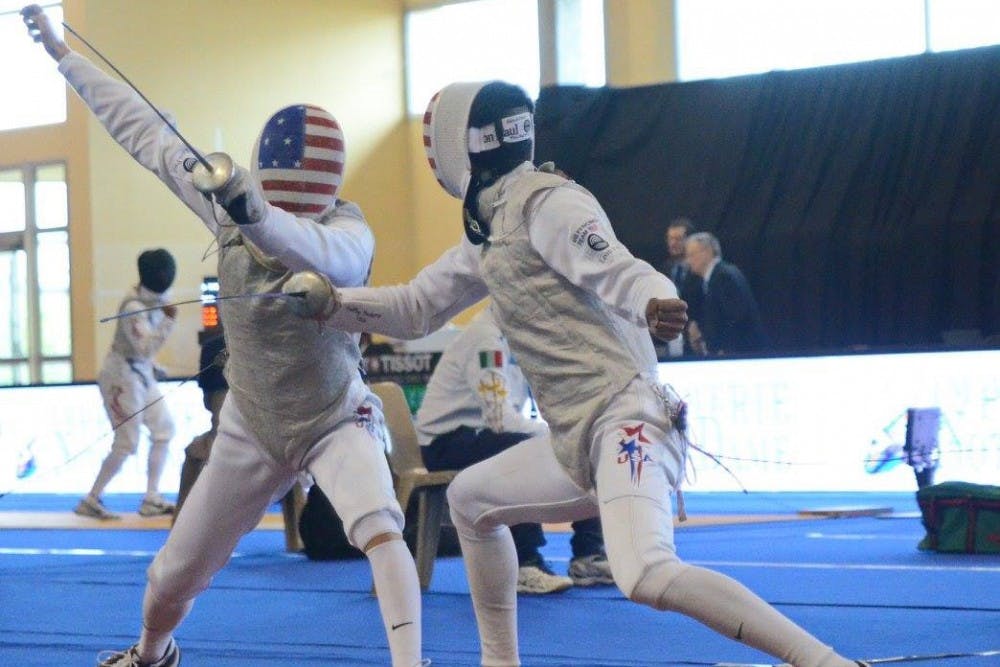
Sara Papp is one of many Penn fencers competing on the international stage.
Credit: Lizzy MachielseIt is no mystery that fencing is an international sport – it is only one of five sports that has been played at every modern Olympic Games.
Penn fencing reflects this international presence, boasting a roster comprised of fencers from all over the globe.
With so many different countries represented, there are a great deal of experiences that make up the squad.
Some members of the Red and Blue don the colors of their home country in the summer months. Sara Papp of Hungary, Nicole Wong of Singapore, and Michael Li of the United States are just a few of the Quakers who have had the honor of representing their national team.
“It’s really nice to represent your country,” Wong said. “I’m the oldest [on my team], which is crazy because I’m under 20 years old.”
The process of national team qualification differs by country, but most simply, fencers compete in tournaments and try to earn points toward their national ranking, and if it's high enough, they are selected for their national team.
However, since the NCAA limits when fencers can compete outside of the university they represent, international fencers are limited in their opportunities to obtain national ranking points. Both Papp and Wong acknowledged the large challenge this presents.
“Since we’re not in our own country anymore, it’s impossible to fly back for all the national tournaments,” Wong explained, “so I have to do way better than the rest in the international competitions.”
Courtesy of Michael Li
Fencing for the national team presents the opportunity to travel all over the world to compete against fencers from other nations. Li has traveled to places such as Bangkok representing the US National Team and Wong will be leading the charge for Singapore to qualify for the Asian Games in Indonesia next year.
For those representing their countries back home, the extra training and competition for international tournaments keeps them in top form for the collegiate season.
Offseason or summer training can be the most crucial time to improve in any sport. Whether it’s improving a specific technique, improving fitness, or a combination of both, there are few times better than the summer.
Fencing is no different.
However, there is no one “dominant” body type in fencing. In other words, everyone’s body is different, so everyone trains differently.
“I pretty much train all year round,” Li explained. “[I] fence in the summer, and I swim for cross training and I do a little bit of weight lifting.”
“I went to lift twice a week [in the summer] and I would go running every morning,” Papp added.
While running and cardio are common ways for fencers to train, that didn’t stop senior Pierre Aymerich from taking it to a whole new level.
Aymerich runs marathons.
This was not something he did on a whim. He vigorously trained and prepared his body for the grueling 26.2-mile trek that is a marathon. And he did it twice.
“It’s something that I picked up from my dad,” Aymerich explained when asked how he got into distance running. “I started with smaller distances, like a 10k, then I decided to go the whole way.”
Aymerich recently ran the Philadelphia Marathon on Nov. 19 and had previously run a marathon in his home country of France on the Coast of Normandy on D-Day.
“The course went right in front of my grandparents' house,” Aymerich said with a smile, “so I could see them, they were just outside waving.”
Aymerich acknowledged that he was slightly disappointed his time being “a little slow” in the Philadelphia marathon, but finishing a marathon is no small feat. Let alone two.
He plans to continue running after his fencing career is over since he enjoys it and says it keeps him in good shape. But as great cardio as marathons may be, running too many can easily cause burnout.
“I’m done with full marathons for this year,” Aymerich laughed. “I’ll wait a few years to get the craving back.”
As members of the Red and Blue return from their respective countries, bringing with them a myriad of experiences from the summer months, it’s easy to imagine it creating more success for the program that has already seen so much success.
The Daily Pennsylvanian is an independent, student-run newspaper. Please consider making a donation to support the coverage that shapes the University. Your generosity ensures a future of strong journalism at Penn.
Donate



